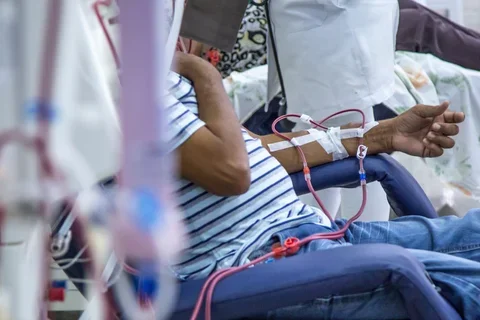Improving the Patient Experience of Hemodialysis Vascular Access Decision Making

Patients with end-stage kidney disease (ESKD) who rely on hemodialysis require vascular access (arteriovenous fistula, arteriovenous graft, or central venous catheter), but providers and patients currently face the selection of a vascular access type without sufficient evidence of likely outcomes. The goal of this project is to optimize the patient experience of vascular access decision-making. This will be achieved by developing an interactive, evidence-based guide to vascular access outcomes that incorporates a prognostic model for short and long-term outcomes of vascular access and identifying best practices for utilization of this guide during the clinician-patient encounter.
To accomplish this, a novel, large-scale data source will be created by linking the Vascular Quality Initiative Vascular Access Registry (VQIVAR) to the United States Renal Data Systems Registry (USRDS) and Medicare claims. Prognostic models will be developed using traditional statistical approaches and machine learning methods (e.g., Bayesian networks, random forests) to predict outcomes meaningful to patients, such as revision procedures or repeat vascular access operations. The best-performing models will be selected and tested for external validity. Simultaneously, a mixed-methods approach will engage patient and provider stakeholders to collaborate in the creation and implementation of the proposed guide, assessing preferred communication means, optimal methods for incorporation, and satisfaction.
Contact PI: Alex Bui; Karen Woo (UCLA)
Funding Source: NIH NIDDK



